detail profile marko todorovi c4 87
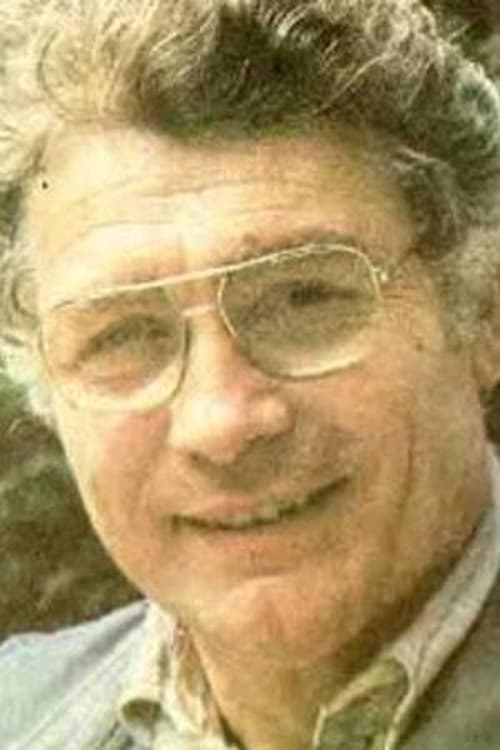
Marko Todorović
Марко Тодорович
atau dikenal sebagai
Riwayat Hidup
From Wikipedia, the free encyclopedia
Marko Todorović (born June 2, 1929 in Prnjavor, Kingdom of Yugoslavia — died on August 29, 2000 in Belgrade, Serbia, FR Yugoslavia) was a Serbian actor famous for playing roles of important historical figures.
Among those the best known is Tito whom he played in the 1974 spectacle The Republic of Užice, and later in a series of television docudramas directed by Sava Mrmak.
He is, however, best known for the comical role of family patriarch Milan Todorović whom he played ten times in Lude godine series of films.
Description above from the Wikipedia article Marko Todorović, licensed under CC-BY-SA, full list of contributors on Wikipedia.
Info Pribadi
Peran Yang Di Mainkan Marko Todorović
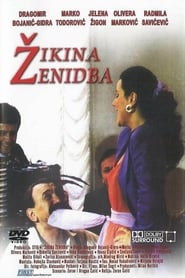 Milan tells ika to get married...
Milan tells ika to get married...Žika's Marriage 1992
Milan tells Žika to get married and come to a suitable candidate, and they decide to give an advertisement in all national and international newspapers. From Slovenia to Brazil, the offers on VHS keep arriving. As Žika do not err on the final selection of young, Milan offers him a language instruction of their knowledge and skills. Žika understands what it is all about and finds out the real tricks of his friend Milan.
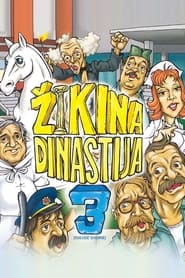 After the road accident Zika and...
After the road accident Zika and...Weird Years 1988
After the road accident, Zika and Milan end up in an overcrowded hospital, run by doctor Nedeljkovic and his sexually obsessed nurse. Accompanied by a crazy bandmaster and a peasant with farting problems, they will try to get away from the ongoing chaos.
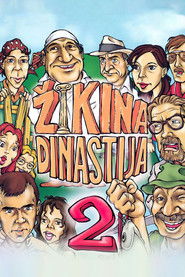 Unlike in the previous sequel of...
Unlike in the previous sequel of...Second Žika's Dynasty 1986
Unlike in the previous sequel of "Foolish Years"/"Zika's Dynasty" film series, Zika's and Milan's grandson became crazy for girls, having sex with them simultaneously in his apartment. Granddads are now worried for different reason, so they visit the doctor who gives them an advice to send their grandson to the country in order to use his strength appropriately.
 In 1985 four middleaged Yugoslav emigres return...
In 1985 four middleaged Yugoslav emigres return...Hey Babu Riba 1985
In 1985, four middle-aged Yugoslav emigres return to Belgrade for the funeral of Mariana, their beautiful compatriot. They called her Esther, for Esther Williams, she was the coxswain for their four-man rowing team, and they each loved her. They'd last seen her in 1953, when they rowed her across the Adriatic, pregnant, to join her exiled father in Italy. In flashbacks we learn the story of their youthful baptism into sex, smoking, rock and roll (Hey Ba-ba-re-bop), Hollywood and Swedish films, blue jeans on the black market, and their rivalry with Ristic, the Communist Party youth leader for whom they had instant antipathy.
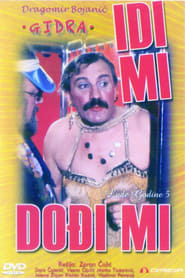 Marija and Boba are moving into...
Marija and Boba are moving into...Come to Me and Go from Me 1983
Marija and Boba are moving into an apartment and the financial problems came to a crisis in their marriage. Affected consumer fever make them neglect each other and the child. In addition, Zika and Milan persistently interfere in their lives.
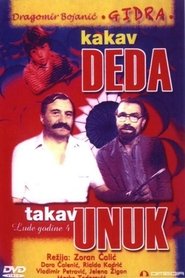 Zika and Milan are fighting over...
Zika and Milan are fighting over...Like Grandpa, Like Grandson 1983
Zika and Milan are fighting over who gets to spend more time with grandson Misha, who is five years old. Although Misha lives with his parents in Milan grandfather, Zika all ways of trying to learn Misa tavern life and his craft. A Milan his grandson sent to violin lessons and English. Come up with a number of interesting situations.
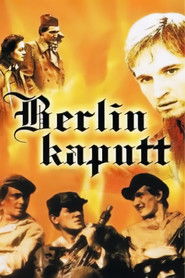 Story of three partisans whose fates...
Story of three partisans whose fates...Berlin kaputt 1981
Story of three partisans whose fates are determined by different encounters with women.
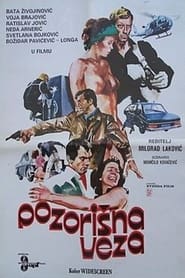 Partly based on true events when...
Partly based on true events when...The Theatre Connection 1980
Partly based on true events, when a group of dangerous international criminals tried to rob the National Theater in Belgrade.
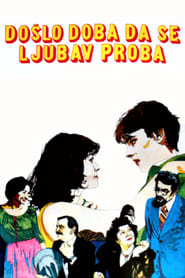 Though the problem of Marijas pregnancy...
Though the problem of Marijas pregnancy...The Time Has Come for Love to Try 1980
Though the problem of Marija's pregnancy may be solved, her relationship with Boba causes a rift between the Pavlović and Todorović families.
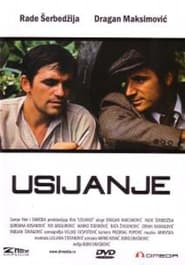 Small village farmers grow tobacco which...
Small village farmers grow tobacco which...Burning 1979
Small village farmers grow tobacco which they are forced to sell to the government for next-to-nothing prices. This repeats with Italians during the WW2, and with the communists after the war. Boiling point is getting high.
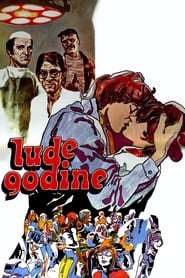 Teenagers Marija and Boba fall in...
Teenagers Marija and Boba fall in...Foolish Years 1977
Teenagers Marija and Boba fall in love. When Marija gets pregnant, Boba's friends come up with a plan to help the young couple out.
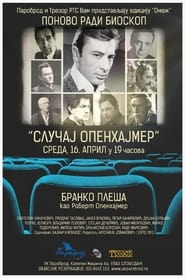 During World War II the American...
During World War II the American...The Oppenheimer Case 1970
During World War II, the American physicist Robert Oppenheimer was at the head of the research work for the production of the atomic bomb. He was removed from that position in 1953 due to disagreements with the US Atomic Commission regarding the development of the hydrogen bomb. The investigation that was conducted against him during the infamous time of anti-communist hysteria and the "witch hunt" during the time of Senator McCarthy is testimony to the great moral and psychological dilemma in which the scientists of that era found themselves.
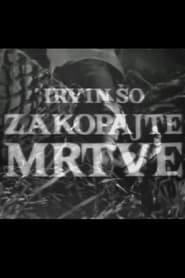 An expressionist and antiwar drama by...
An expressionist and antiwar drama by...Bury the Dead 1969
An expressionist and anti-war drama by the American playwright Irwin Shaw. It dramatizes the refusal of six dead soldiers during an unspecified war—who represent a cross-section of American society—to be buried. Each rises from a mass nameless grave to express his anguish.
 In Autumn of 1943 American plane carrying...
In Autumn of 1943 American plane carrying...Operation Belgrade 1968
In Autumn of 1943 American plane carrying Soviet colonel is shot down near Nazi-occupied Belgrade. Germans capture the colonel and begin interrogations, because he knows everything about forecoming Allied summit in Tehran. Group of Yugoslav Partizans is sent to Belgrade in order to rescue the colonel before he starts talking.
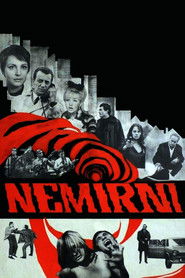 One night after disastrous road accident...
One night after disastrous road accident...The Restless Ones 1967
One night, after disastrous road accident, the eyewitnesses were claiming that they saw a woman behind the steering wheel. It was actually three teenagers who stole Peugeot 404 to drive around for fun, but the girl who hitch-hiked them left the car in the middle of highway. They have been chased by the police and crashed fatally. The police continues their intense search to find the fourth person.
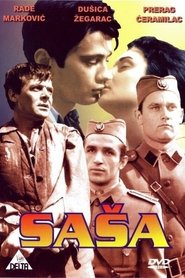 A mysterious person is killing proNazi...
A mysterious person is killing proNazi...Sasha 1962
A mysterious person is killing pro-Nazi officials in a small Serbian town. A group of children accidentally reveal his identity.
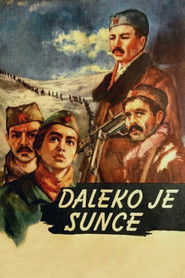 Down under the constant attacks of...
Down under the constant attacks of...The Sun Is Far Away 1953
Down under the constant attacks of the German and Bulgarian forces, headquarters one of the partisan detachment in the midst of a severe winter and snow and difficult terrain, with many wounded, he decided to leave the mountain Jastrebac. Gvozden, a peasant from that area, brave warrior, opposes such a decision, was gets ready to leave the unit before detachment. In the interests of discipline, however, Gvozden was convicted and executed on the spot, although it regrets the whole squad.
 Biopic about Serbian folk singer Toma...
Biopic about Serbian folk singer Toma...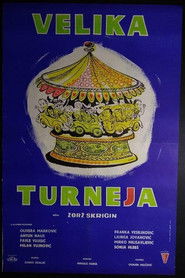 Musical comedy set in showbiz milieu
Musical comedy set in showbiz milieu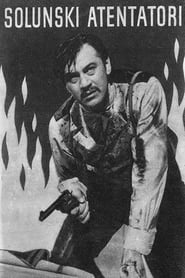 The story of a famous group...
The story of a famous group...